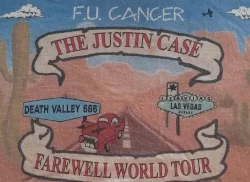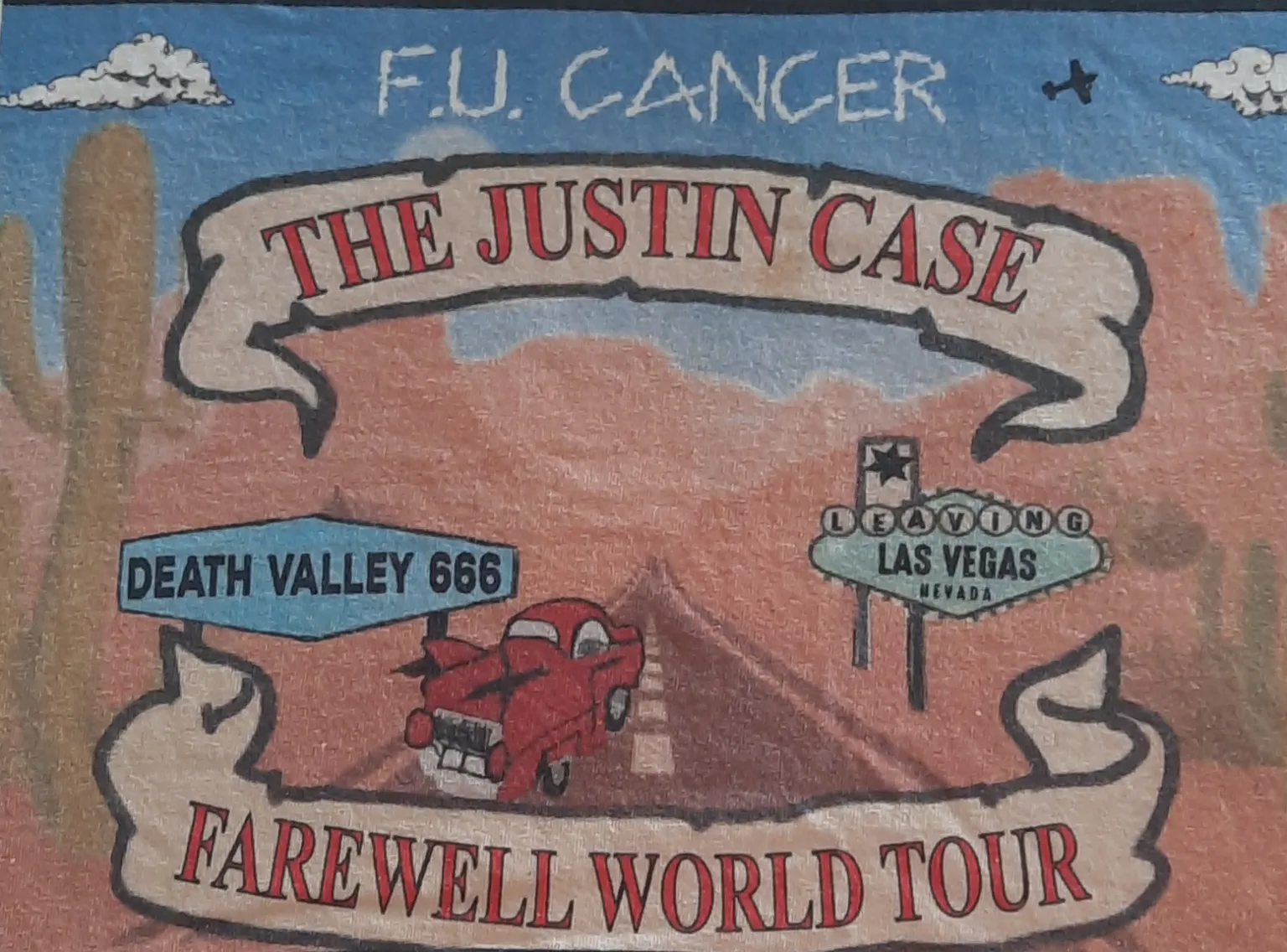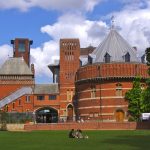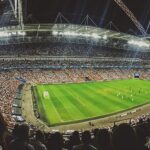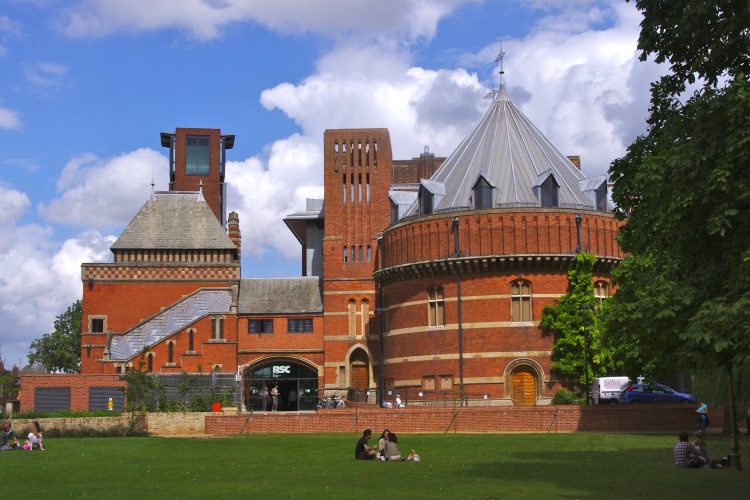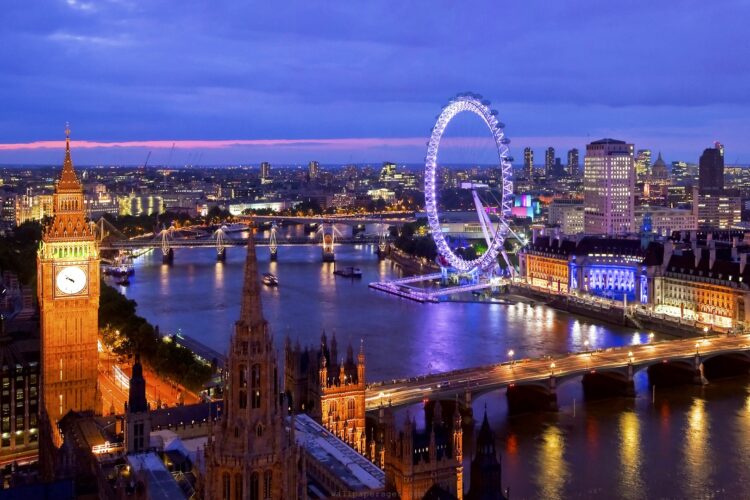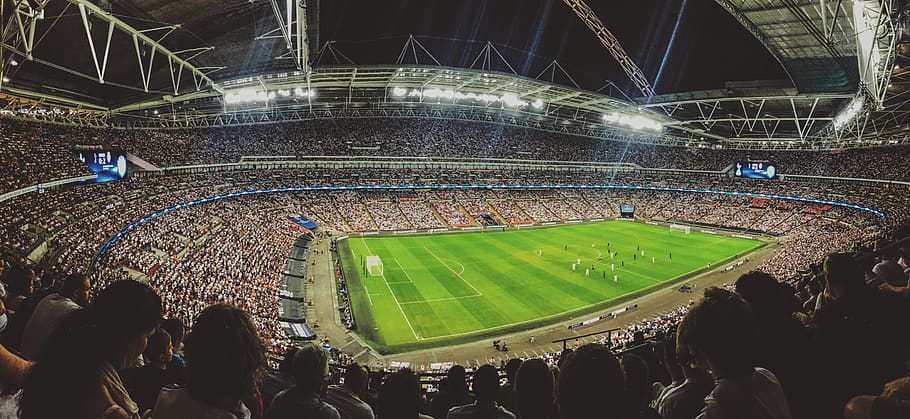
It is important to develop a love of something when you are a child. Something that will help you through the mindless childhood hours that are not spent getting bored to tears in school. Life as a child is supposed to be the best time of your life. And arguably these are indeed the greatest days. But given the limited funds in most houses and therefore the limited access to Disneyland; in fact, no access to anything more entertaining than setting fire to ants with magnifying glasses, then you better make sure an adolescent boy has something to do. For most boys of my generation that was football. We all desperately wanted to be professional footballers. No one in my circle of friends or anyone that any of the hundreds of us knew went on to play professional football. But we all were certain at one stage of our lives that we would one day play at the highest level and score the winning goal at the World Cup for England, or in my case Scotland. So, after school, before school and sometimes instead of school most of us would end up at the park kicking a ball around. If you could round up two friends then you would play three and in. That meant two of you played outfield attackers and one of you played goalkeeper. When someone scored three goals, they then replaced the goalkeeper. This was played for many, many hours that probably added up to about one third of my childhood years. As kids we all adopted a favourite team. About 75 per cent of us were fiercely tribal and supported a local team. This on reflection was incredibly stupid as no Birmingham team had been successful in any competition of any worth since we had been born. Another 25 per cent picked one of the successful northern teams that would once every couple of years win the prize of all prizes; The F.A. Cup. Before I explain further, no one ever supported any of the London teams. Doing so or even showing some degree of sympathy was met with derision and a degree of mind-altering force that borders way beyond bullying, instead encroaching on torture regimes.
The F.A. Cup to me is still the greatest competition in the whole of team sports. It has been played for annually, excluding world wars, since 1872. These days as many as 750 teams compete in a knockout format. The highest-level teams in the Premier League don’t enter until the minnows have thinned the field down to 48 teams. Nevertheless, almost every year throws up the spectre of an Arsenal or Manchester United having to go and play against a team like Cleethorpes Old Boys. Every now and again form is beaten by guts and then enormous glory ensues. Despite these moments of romanticism when David beats Goliath, most finals end with the very best teams playing off at Wembley Stadium for the F.A. Cup final in front of 100,000 screaming fans and a TV audience of everyone else in Britain and millions of fans around the world. Every single boy and most girls I grew up with all dreamt of being the scorer of the last-minute winner in the F.A. Cup final. I watched every F.A. Cup final live in front of my TV right up until I was 15. Then through an accident of birth I got a chance to go to see the 1978 final at Wembley Stadium. A cousin worked at the Birmingham City stadium and had managed to get us two tickets for the final. This was eight weeks before the final so we didn’t know who was going to be playing. But we knew without any doubt that we were going to be there.
When it came around to the semi-finals there was a potential giant killing in the offing with the very small Leyton Orient playing just about the biggest club in the land; Arsenal. Let me say upfront I hate Arsenal. They were from London and my wicked Step-Father was a fan. Unfortunately, the upset was never a chance, with Arsenal winning easily 3-0. It made me very unhappy that I might be going all the way to London to watch Arsenal win the F.A. Cup. And it looked for all money that Arsenal’s victims would be a Birmingham side; West Bromwich Albion. Unfortunately, even this didn’t come to pass as WBA were beaten surprisingly by Ipswich. So, the finalists were set. The mighty Arsenal v the very little Ipswich Town. This meant, with just a few weeks to go, I was in turmoil and seriously considering giving my ticket away; I very much didn’t want to watch smug Arsenal fans winning in my mind the greatest trophy on Earth. I decided that I would go and see Ipswich play the week before the F.A. Cup and that if they showed some promise, I would go to London hoping for an upset.
The weekend before that final, Ipswich played one of my local teams, Aston Villa. I sat impassively and hoped Ipswich would perform well, and that then the following Saturday I could go south with just an atom of hope. Ipswich played awfully. Aston Villa thrashed them 6-1. That same day, Arsenal played well and easily won their game. Despite all of this and because I have a penchant for masochism, I still decided to go to Wembley. Maybe I thought that there was a small chance. Maybe I thought that Ipswich might not play too badly. Hand on my heart; I fully expected a blood bath.
I remember arriving at Wembley Stadium train station and immediately we were besieged by hordes of jubilant Arsenal fans wearing tee shirts already emblazoned with “Arsenal 1978 F.A. Cup winners”. The shirts all had a big gap under the winner’s tab all ready to fill in the eventual score. Some Arsenal fans had already filled in scores like 10-0 and 16-1. I felt physically sick. What if they were right? But then right outside of the station I came across my first band of Ipswich fans. They were smiling, ecstatically happy to just be there. The biggest teams make it to Wembley and the F.A. Cup once every four years. The smaller teams maybe once in a lifetime. This was these Ipswich Town fans’ once in a lifetime trip to the Promised Land. They say that on the way to the cliff face all the lemmings are euphoric. Here were thousands, no tens of thousands of Ipswich lemmings merrily making their way to the cliff face. Nevertheless, I wished that I was an Ipswich fan – and for that day, there and then, I indeed became a fan of Ipswich Town. There they were all dressed in blue and white and singing songs. As I walked with the Ipswich fans down “Wembley Way”, the road that leads to the stadium, I was swept up in the atmosphere that only soccer, and especially soccer involving English fans, has. It’s a tribal thing at its very best. And it’s best you are swept along with it. You march along, never doubting your journey and its eventual end, as if victory is rightfully and indisputably yours; groups of people being fiercely partisan, even in the case where victory was as unlikely as the charge of the light brigade.
It seemed to me that there were at least as many Ipswich fans as Arsenal fans and they were going to have fun whatever. It was like the London sieges by the peasants in days of old. And these boys were proud of where they were from. One Ipswich fan bedecked in scarves and a flag was proudly wearing a tee shirt bearing a picture of a Ferrari 512 with a big red line across the Ferrari image and the slogan “I’d rather be driving a combine harvester”. They sang self-deprecating songs but so endearing. Their favourite song went something like this:
“I can’t read and I can’t write;
but that doesn’t matter.
Cos I’m an Ipswich Town fan;
and I can drive a tractor.”
I loved them all, the funny brave Ipswich fans, and I desperately wanted them to beat the Arsenal fans who were up themselves fans. They were already singing Queen’s song “We Are The Champions” and screaming the chorus moronically while pointing at groups of Ipswich fans “NO TIME FOR LOSERS”. The Arsenal team had a goalkeeper called Pat Jennings. Goalkeepers are traditionally the players worth the smallest amount in a football team. Yet Pat Jennings was worth more on the open transfer market than the whole of the Ipswich team put together. How could a whole team that didn’t add up to one goalkeeper expect to score and not concede goals? Just seven days before, Ipswich had conceded six goals to a much-lesser team Aston Villa. This made me very, very sad; as everything pointed to a very big spanking on the field for these wonderful fans. Wonderful fans that would have to sit on the sideline and watch their local heroes bested by an Arsenal team full of international superstars.
The two teams came onto the field and the gulf in talent was obvious. The Ipswich goalkeeper stumbled on the way to his goal and failed to stop any of the warm up shots his striker hit from different parts of the penalty box. My cousin and I were keen to send the goalkeeper some Voltaren in the changing room. He was going to need it for the sore back he was going to get bending over picking balls out the back of his net. The Arsenal team moved out on to the field as one, they seemed to glide over the turf like lions spreading out for the kill. Of the 11 Arsenal players, only one hadn’t at that stage represented his country at senior international level. The Ipswich side only had one current international and he played for Scotland, so that didn’t really count. To make matters worse for me, the seats we had were firmly among a sea of obnoxious Arsenal fans; some of them holding tin foil replicas of the F.A. Cup. All spouting cockney accents and being disparaging about the tractor boys. Each placing bets with one another about which Arsenal player would score the first goal and who would score three goals first. The humblest bet had Arsenal three up by half time. They just about all sported the Arsenal 1978 F.A. Cup winner’s tee shirts as if they were just there to see through the technicalities of winning the game on the pitch. I was like a fish out of water breathlessly pouting and completely doubting Ipswich’s chances.
It has been my pleasure to be at quite a few stunning sports events over the years. Like when I watched a bespectacled, shoeless waif of a South African girl called Zola Budd run a world-class field of athletes into the ground. Not just beating them, but completely crushing them. She finished a whole indoor lap in front of some of her pursuers. Zola lapped incredulous national champions like they were stuck in second gear, while she herself was cruising along comfortably in overdrive. Zola never seemed to touch the track but to hover over it, like a rampant gazelle moving at an ever-increasing pace. In the final straight, to a deafening roar of rhythmic clapping, Zola’s legs whirred with a crescendo that seemed to suck the finish line to her rather having her break through the tape. Zola punched her miniscule fists in the air, finishing in a world record time; I stood up clapping, screaming and crying.
One of the greatest sporting tragedies of my lifetime was the loss of Zola Budd for political reasons and eventually spiteful selfish media hounding. But I can say that I saw Zola Budd at her world-dominating best. Sport, yes, any sport played at its absolute best is better than any other art form. I have seen great artists perform in other disciplines, but only sport brings together years of practice, applies enormous pressure, sometimes for decades, and distils that into a single moment that can be as little as a split second, but will separate the athlete from the artist. Turn a truly good sportsperson into an absolute legend and in legend, as with Zola Budd, that can sometimes be an eventual tragedy. Zola was robbed of Olympic glory and retired well before her peak. Like the tragedy of George Best, not everybody can be Tiger Woods, not even Tiger Woods.
That day at Wembley, the supremely talented Arsenal team full of star players, each full of skill and grace, played an Ipswich team that was under the instruction of a maestro of a manager called Bobby Robson. Bobby Robson in another age would have been a supreme general in command of armed forces leading the prosecution of a war against a superpower by a band of brothers ill equipped but well led. Bobby Robson taught Arsenal a lesson. He once said:
“Football isn’t about kicking the ball into a net. It is about sharing the ball around and keeping the ball. Then when you lose the ball, as a team you defend till you get it back again. Then you move forward possessing and stealing territory. Encroaching on your opponents’ goal; ever threatening whilst maintaining possession. Retreat to keep the ball and never give the ball away easily. Make every confrontation one that you go into with back-up and ways out. Then when the situation is right, believe in yourself as I believe in you. Then, win, lose, or draw, we will truly be winners.”
That was the day I found out that a star team is better than a team of stars. All day Ipswich was the best team and could have easily won 3-0. In the end it came down to just one goal scored by someone who never ever did anything else of note in his whole career. He is Roger Osborne. There in the 78th minute of the 1978 F.A. Cup, Roger Osborne became a legend. Roger was from a family of 12 and they had all driven down together to Wembley Stadium. In 1980, just two short years after this epic game, Roger Osborne was out of top flight football and driving a truck for a living. But on that day in May 1978 the ball fell, albeit a little kindly to Roger. With the ball at his feet just eight yards out from Pat Jennings’ goal, Roger the future truck driver lashed a left-footed shot between two England international defenders and past an outstretched hand of the Northern Ireland international goalkeeper and inside the far post.
It is fair to say that the goal was greeted with enormous pleasure by all but the Arsenal players and the Arsenal fans. I joined in the jumps for joy and very much enjoyed the death stares from the Arsenal fans all around me. But most of all Roger Osborne jumped for joy more than any of us. He launched himself on the spot like one of those pogo-jumping African tribeswomen with stretched necks. He launched himself skyward up and down on the spot. He had just fulfilled the dream of every boy that ever dared to dream a dream. Dreams do come true, just watch back the footage on You Tube. In the celebrations, Roger was so overcome with joy that he fainted. Yes, he totally blacked out and lost consciousness. So much so he had to be substituted there and then and had nothing else to do with the final 12 minutes of the game. After the game, Roger was carried shoulder high around the ground and I swear as he passed me, I could still see his eyes spinning back and forth and rolling around in his head. Roger now drives a truck but every day somewhere he escapes into his head and watches back those legendary moments, smiling the smile of a true legend.
Since 1978, Wembley Stadium has undergone some very big changes. The iconic twin towers that made it such a recognisable stadium, are now gone. From the distance in a small boy’s imagination, Wembley Stadium used to look like a giant lying down on the road at the end of Wembley Way. The twin towers looking like testicles on the giant’s thighs. It just lent extra mythical quality to Wembley. In 2018, the only thing that gave Wembley any semblance of uniqueness was a steel web-like arch that looks very much like the section of an unfinished roller coaster. It looks as if at any moment a car of screaming patrons will emerge from the pavement in front of the underground station only to soar over the stadium roof and plunge back and underground on the other side of the stadium. When I got to Wembley Stadium there was still a lot of construction going on; but it was easy to see that Wembley would eventually be surrounded retail outlets, restaurants and bars. I hope that the now-completed Wembley Stadium has got back some of the atmosphere it once exuded in spades. When Live Aid was at Wembley and even when I went to concerts by Queen and Bruce Springsteen, the old Wembley managed to exude a special atmosphere. I always felt like I was somewhere very, very special; really in a magical place where miracles and amazing things happened. On my current visit, Wembley was really more like arriving at an entity rather than at a building, like being in an amazing historic palace or a thousand-year-old haunted castle.
New Wembley made me feel like I was at a Milton Keynes, a London satellite city with a huge shopping centre complete with a huge oval enclosed mall. When I went to a David Bowie Concert at Milton Keynes Bowl, David Bowie was great; the Milton Keynes Bowl was not. It just had no atmosphere and sucked life straight of a great concert. I know this because I saw the same concert in Sydney nine months later and it was brilliant the second time around. When I got to Wembley, I felt the same way as I did when I got to Milton Keynes.
Maybe the new Wembley Stadium lacked atmosphere because it was still under construction. I was begrudgingly doing the tourist stadium tour with “special royal box photograph opportunity”. Because this was probably my last chance to be at Wembley Stadium, I thought I might as well give in to commercialisation and do the tourist tour. I was trying to pretend that I wasn’t into this commercial shit, but like a 13-year-old rebel, opening their Christmas presents, underneath the acne and fake disdain, I was still excited. If I am honest, in the planning stage of the Justin Case Farewell World Tour, I had decided that the Wembley Stadium Tour was going to be one of the non-negotiable must dos. So, there I was, sitting down exhausted after walking all of the way around the stadium because I had parked in the wrong car park. The noise of construction was going on all around the outskirts of the now-finished stadium. With Wembley I think it’s best to use the Caitlyn/Bruce Jenner metaphor, the major body work had been done and they were just applying a final much-needed thick layer of makeup. I was sitting waiting impatiently for the tour to begin; I was trying, mostly in vain, not to be sucked in by the memorabilia everywhere or all the things that happened at this venue. I kept telling myself that this was no more Wembley Stadium than Caitlyn Jenner is still Bruce Jenner. But, if you looked really closely, in the same way that under all the surgery you can still see Bruce Jenner, well under the new façade and bright red seats you could still feel Wembley Stadium throbbing, exuding a stifled atmosphere of sorts. It was still there and just like Bruce Jenner; Wembley was still trying to exude new charm and fake grace while all the time demanding some very much due respect. Wembley and Caitlyn, under the new skin, facelift, fresh toilet facilities and different changing rooms; well, they were still both world-beating sports icons and they were no longer just defined by balls.
On the tour, I did all the things that tourists and die-hard football fans do. I sat in the changing rooms where Beckham, Charlton, Rooney and hundreds more football players have sat. I walked out into the stadium to a sound track of supporters screaming and me leading out a fake Birmingham City onto the pitch. While on the pitch, I managed to grab a few blades of grass which I kept in my wallet all the way to NZ customs. That’s where I nearly got onto the TV show Border Control. After my mini pitch invasion; as a tour we ascended the iconic Wembley staircase. The staircase that the victors and runners-up ascend after every Cup final, just as my heroes who have won an F.A. Cup had done for nearly 150 years. The stairs were steeper and many more than I thought, but they would be well worth it if you were climbing them to get your winner’s medal. I can only imagine how you must feel after playing the hardest game of your life and losing. You traipse dejectedly past hundreds of mocking fans. After 90 minutes, you climb four flights of stairs to get a runners-up medal. A great football manager called Brian Clough once said it didn’t matter how you spelled it or pronounced it, all “Runners-Up Medal” should have five letters on the back and engraved around the edge “LOSER”. When he took his teams to Wembley, he used the agony and shame felt climbing those steps as a LOSER to motivate his teams. It worked, as he won five of the seven finals his teams played at Wembley.
After the mountain of stairs, I turned a corner and all of a sudden I stood breathlessly there in front of the royal box and the much smaller than I thought F.A. Cup. I waited my turn as others stepped forward into the royal box where many a royal leach had sat quaffing champagne and gobbling salmon canapés, occasionally glimpsing up to see sporting history played out in front of them for free. But stealing the attention and plain for us all to see was the F.A. Cup. Ok, it was very unlikely to be the real cup, but it was so close a facsimile, I am told that those who have actually held the real thing can’t tell the difference. All too quickly it was my turn. To give this occasion its true place in my life; for me it was like a catholic who only goes to church for births, deaths and dispatches suddenly finding himself in front of the Pope. I did the only thing you can do when in the presence of the lifelong wanted Holy Grail. I bowed subserviently, caressed it sleazily, kissed it softly (ok with a bit of tongue) and hugged it lovingly. None of which was allowed. I found out later I was supposed to just stand near the cup and pose for a photo. The attendant who was taking my picture while I sullied the Cup was tasked with prizing the F.A. Cup from my grasp and with white gloves try very hard to rub off my perspiration, finger prints, saliva and smudged kisses.
After that unwanted incursion. we as a group, but especially me, were escorted back to the main lobby. On the way we were force-fed some info about all the bands and various Wembley performances that stand outside the arena of sport. I had been to old twin tower Wembley frequently to see bands and sometimes just to sell scarves. One of my greatest memories was at a Bruce Springsteen concert. For concerts, the pitch is covered with boards so it is not damaged. All except where the speakers are. This is because the boards make the speakers reverb a bit. So, they get a barrier all around them and they sit directly on the hallowed Wembley turf. I snuck over the barrier as Bruce Springsteen launched into a five or six-minute homage to The Beatles. My favourite memory of Wembley is me lying on the pitch looking up into a starry sky while Springsteen bawled out Eleanor Rigby, Lucy in the Sky with Diamonds and I am the Walrus.
Suddenly in 2018 we found ourselves unceremoniously standing outside the arena and in yet another gift shop. Wembley Stadium has enjoyed lots of glory days and like our friend Bruce/Caitlyn will definitely undergo more work, but whatever ugliness the surgery brings forth let’s just remember they are deep down still iconic sporting heroes.
After a big day taking in the sights (Wembley’s building site) and sights (London its people and historic buildings), I headed for my temporary home through the back streets of Wembley. My tour in total took the best part of six months. Later during the tour, I found myself by error in the back streets of New Jersey, at 2am, no phone, lost, and no idea of where to go. I also drove through New York City at 3am. I went to south central LA and drove windows up, doors locked through Compton. I ate and drank in some very seedy bars and while there, I irritated red necks by pointing out how dangerous to them their guns were. Told a very drunk ex-marine that we were no better than the terrorists. I had my credit card frozen after buying jewellery from a Navajo Indian, so for a while I had no money, no fuel and was stuck in a Burger King in New Mexico. I upset a cowboy in Oklahoma by asking wasn’t modern day US warfare waged in Syria just terrorism, to which he replied he was going to his truck to fetch his gun. Not once in any of those times or places, did I really fear for my safety. That is not true of the third day and being by mistake in the back streets of Wembley.
For a start, Wembley high street was my first encounter with the threatening homeless beggars that now seem very much a part of English life. An almost regimented force of people living in tents on traffic islands and begging for food to feed themselves, puppies, kids or just plain demanding you pay a toll or get your car scratched. Red lights always had a sexual connotation to me, now they got a highway robbery connotation. In Wembley while avoiding beggars, my GPS directed me down a side street in 500m. I turned left one fateful road too early and found myself fed onto an estate that had no other exit but the one that I had just come through. I wasn’t aware of this and started down an avenue that would at its end allow me down a side road to do a full circle in the form of quirkily called Lilac Drive. No lilacs and definitely no drive. I found myself approaching a dead end and with cars parked and some obviously abandoned sitting on bricks with no wheels on either side of the road, I had very little space to turn around. It was at this time I realised that every four or five houses there was a gathering of youths. I say youths but some were well into their thirties and a few even sprouted grey hairs from under their back-to-front baseball caps. They all wore football shirts and/or basketball vests and various striped and swished shorts and running shoes. They were predominantly fat and all seemed to be scowling. There were no laughs here. Each group turned their attention fairly and squarely to me as I drove past. My GPS said that this was a through road but the road was definitely blocked ahead of me by cars parked haphazardly. In my rear vision I could see two groups on the road effectively making my escape back down the road look impossible. In front of me to the left-hand side there was just a single parking space that was free but for traffic cones. The cones were probably put there by the owner of the house so he didn’t have to park three suburbs away. I decided I needed to turn around and quickly try and get back down the road. The unwelcoming committee down the road appeared to be thickening by the second.
I ran over two of the cones to get the nose of my hire car into the front garden of the house and just as I was about to start reversing, I saw an alleyway that ran beside the house. So instead of reversing I kept going forward and bumped my car across the front garden and into the alleyway. I had no idea where the alleyway went but it wasn’t back towards the group of men waiting in the middle of the road. It seemed to me that they were waiting to extract some kind of toll for me to earn my freedom. As I bumped down the kerbside and into the alleyway, I heard the group screaming at me collectively and waving their arms in my direction. Some of them started to run, but mostly waddled earnestly down the street towards me. This cheered me up no end. I straight away knew I wasn’t on the road to nowhere or else these guys wouldn’t be flapping fat and chasing me. The alleyway led to the back gardens of the avenue that had led me into Lilac Drive. I travelled as fast as I could without hitting any of the cars on either side of the alley and giving playing kids enough time to scramble out of the way. I looked in the mirror and could see that I was making great time on my pursuers and all but a couple had given up the chase. I breathed a sigh of relief as I came out the alleyway and could see Wembley High Street just 50 yards down the original avenue I had driven in on. Then my sigh of relief quickly turned into horror.
Apparently, the guys who had stopped chasing me had phoned their friends/fellow vultures that lived close to the high street. They were now quickly coming out onto the avenue and stepping towards the road. I have always been blessed with a great flight over fight instinct and it is particularly keen when the odds against me spiral out of control. Being chased by a bunch of Leeds United fans, I once beat our 100m school champion by a good 20m back to the safety of our police-escorted supporters’ bus. All the way home and for several weeks my mates called me Zola Budd. That day I took flight in my little Daewoo hire car. I floored the accelerator and went for Wembley Road like I was sprinting for the F.A. Cup. I heard and felt several things hit the car and I hoped that it was a chocolate thick shake that obliterated the windscreen for a second. With 10 yards to go I caught the kneecap of a very fat man who had at the last second decided to step out of my way. I am sure I hurt him as I saw him spin down the passenger side of the car and then saw him via my rear-view mirror limping back to his feet in the middle of the road as I made it out onto the high street.
A few miles further down the road I shakily stopped at a petrol station to survey the damage. Firstly, and most importantly, the brown liquid was a Chocolate thick shake, nothing more odious. The car had a few scratches and bumps but nothing that stood out above all the previous supermarket trolley bumps and scrapes. On the left-hand side where I had hit fat man, the passenger wing mirror was smashed and on the passenger door a sharp piece of the body cowling had blood on it. The bumper had a piece of trim missing and where it touched the body there was more blood and a piece of Adidas material complete with tell-tale Adidas stripes. I filled up with petrol and while inside bought some real Wagon Wheels. (Wagon Wheels are chocolate biscuit sandwiches with marshmallow and strawberry jam in them). I bought a very cold six pack of Tennant’s Extra lager and some more Morrisons Pork Pies. I paid for my petrol, food and drink purchases and an executive car wash. While my car was thoroughly scoured of chocolate thick shake and fat man’s blood I very shakily saw off three of my six pack, three mini pork pies and two Wagon Wheels. Last time I had eaten was that morning on the Tube. It seemed like a lifetime ago. Just at that moment my wife sent me a text. While the text demanded details of a long day and deserved so much more, I wrote just two words and added two sad face emojis “England’s Changed ☹☹…”
